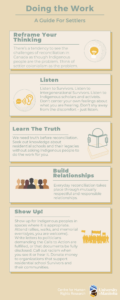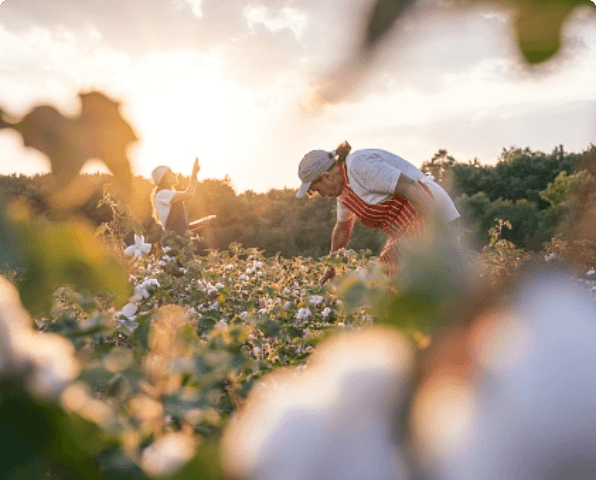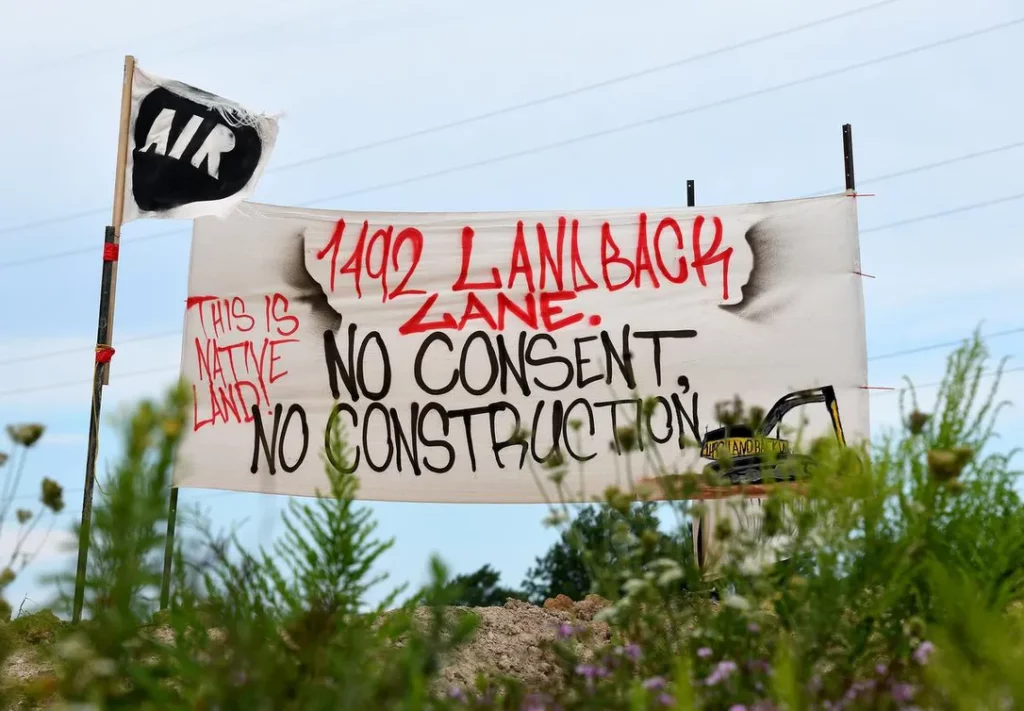By Adele Perry and Pauline Tennent

Buttressing Borders in 2023
On 25 March 2023, changes were announced to expand the Safe Third Country Agreement (STCA) between Canada and the United States beyond formal ports of entry, to the entirety of the 6,416 KM Canada-US border, what historian Benjamin Hoy has called “a line of blood and dirt.”[1] These changes have been greeted with immediate and, from the perspective of the Centre for Human Rights Research, pressing concerns for asylum seekers, refugee claimants, and other people on the move.
The STCA was signed in 2002, and came into effect two years later. It requires that refugee claimants request protection in the first “safe” country they arrive in. Under Canada’s Immigration and Refugee Protection Act, the United States is the only country considered a safe third country. This means that those seeking refuge at a land border crossing in Canada cannot make a claim for asylum if they have previously arrived at an official port of entry in the United States, and similarly, that refugee claimants traveling via Canada to seek asylum in the U.S. will be turned back to Canada. The expansion of the STCA is taking place in a global context of violence and deaths at borders and border crossings, of preventable deaths at immigration detention centres, of xenophobia and fear-mongering over issues of asylum, and of states around the world outsourcing or abdicating on their international responsibilities to those seeking refuge.
Since its introduction almost two decades ago, the STCA has decreased the number of people who make refugee claims in Canada, fulfilling the Canadian government’s goal in pursuing the deal. In 2004, Canada received roughly 8,900 refugee claims at claims at border points of entry; after the STCA was introduced Canada received just over 4,000.[2]
Those who work with, and advocate for, asylum seekers and refugees raised concerns about the STCA from its beginnings. Among their concerns was that the U.S. was not a “safe” country, particularly when then President Donald Trump suspended the temporary protective status designation. In 2022, the Canadian Council for Refugees, Amnesty International Canada, the Council of Churches, and eight individual applicants asked the Supreme Court of Canada to consider whether the STCA violates the Canadian Charter of Rights and Freedom, and called on the court “to end a policy that cruelly bars many people from seeking refugee protection in Canada.” This decision is still before the court.
Rather than withdrawing from the STCA and upholding Canada’s international obligations to refugee claimants, the current federal government has opted to expand the STCA. This represents a shift in the posture of the current Canadian government, who have made much of Canada’s willingness to welcome refugees.[3] The agreement to expand the STCA was first signed in March 2022, and kept under wraps for almost a year. It will send more refuge-seeking migrants back to the U.S. It requires that people not to make a refugee claim within 14 days of entering Canada, essentially asking that they hide during their first days in a new country, making them more vulnerable.
This amendment was negotiated without meaningful consultation with experts, service-providers, or those with lived experience. It is now being rolled out quickly, without adequate training to those tasked with enforcing it, and with inadequate communication to all those who may be impacted. The expansion of the STCA has occurred while the case is still before the Supreme Court. The Canadian Council on Refugees points out that applying the STCA between recognized border crossings will not stop people from crossing the border between them: “it will simply make them more irregular, dangerous, and underground.”[4] The unofficial crossing at Roxham Road might be shuttered by changes to the STCA, but people will find ways, even when they put themselves at risk.
The story of changes to the STCA is unfolding as we speak. The discovery of 9 people dead – four members of the Iordache family, four members of the Chaudhary family, and a man from Akwesasne – after trying to cross from Canada to the U.S. through Mohawk Akwesasne Territory suggests that concerns about the impact of tightening border controls are not unfounded. Nor are concerns that such issues will affect Indigenous communities themselves bisected by the border.

In light of these changes, the CHRR urges people to learn about refuge, migration, and rights in Canada. Borders and Human Rights is one of our four research themes and have been the subject of this year’s Critical Conversation series. CHRR research affiliate Shauna Labman from the University of Winnipeg’s Global College examines refugee law, resettlement, and refugee sponsorship, and argues that Canada should suspend the STCA. University of Manitoba sociologist and research affiliate Lori Wilkinson studies resettlement and the integration experiences of immigrants and refugees, most recently those from Afghanistan. You can watch a recording of a Critical Conversation seminar on “Rethinking Borders” with Drs. Lorena Fontaine, Rob Lorway, Lori Wilkinson, Shauna Labman, and Shayna Plaut here.
In this year’s first Critical Conversation “Talking Borders, Colonialism, Resistance, and Human Rights,” panelists Harsha Walia and Dr. Alex Wilson outlined the inherent violence that occurs from borders and from processes or bordering and ordering. And they encouraged us to think beyond this state-centric view of borders. What would immigration and refugee policy look like if it began from the starting point that No One is Illegal, that Indigenous law and sovereignty mattered, and that Canada had obligations to people on the move under both international and domestic law? These are big questions, but they are ones that very much matter.
You can learn more about changes to the STCA at the following open-access sources.
- Bridges Not Borders Statement on the Closure of Roxham Road: http://www.bridgesnotborders.ca
- Canadian Association of Refugee Lawyers Statement on the Expansion of the STCA, 24 March 2023: https://twitter.com/CARLadvocates/status/1639412980021338113/photo/1
- Laura Madokoro, “Justin Trudeau and Joe Biden are missing the bigger picture about migrant border crossings,” The Conversation, 26 March 2023, https://theconversation.com/justin-trudeau-and-joe-biden-are-missing-the-bigger-picture-about-migrant-border-crossings-202546
- Laura Madokoro, “The U.S.-Canada deal maintains our tradition of dodging our responsibilities to refugees on our borders,” The Globe and Mail, 26 March 2023 theglobeandmail.com/opinion/article-the-us-canada-deal-maintains-our-tradition-of-dodging-our/
- Amnesty International Statement on Expanding Safe Third Country Agreement a shameful response to Roxham Road Crossings, 24 March 2023: amnesty.ca/human-rights-news/joint-press-release/canada-safe-third-country-agreement-expansion/
- FCJ Refugee Centre. Safe Third Country Agreement: What is it? What is new? What are the exceptions? 25 March 2023: fcjrefugeecentre.org/2023/03/safe-third-country-agreement-what-is-it-what-is-new-what-are-the-exceptions/
- Christina Clark-Kazak, “3 Ways Ottawa can rebuild trust following changes to the Safe Third Country Agreement,” The Conversation, 30 March 2023: https://theconversation.com/3-ways-ottawa-can-rebuild-trust-following-changes-to-the-safe-third-country-agreement-202693
- Boke Saisi, et al., “Roxam Road: Asylum seekers won’t just get turned back, they’ll get forced underground – podcast,” The Conversation, 30 March 2023, https://theconversation.com/roxham-road-asylum-seekers-wont-just-get-turned-back-theyll-get-forced-underground-podcast-202699
[1] Benjamin Hoy, A Land of Blood and Dirt: Creating the Canada-United States Border across Indigenous Lands (New York, Oxford University Press, 2021).
[2] Canadian Council on Refugees, “Statement on the expansion of the Safe Third Country Agreement,” https://ccrweb.ca/en/statement-expansion-safe-third-country-agreement.
[3] Laura Macdonald and Jeffrey Ayers, “The Safe Third Country Must End: Much is at stake in Canada’s appear of a court ruling against a harmful refugee pact with the United States,” The Monitor, 15 October 2020, https://policyalternatives.ca/publications/monitor/safe-third-country-agreement-must-end
[4] Canadian Council on Refugees, “Statement on the expansion of the Safe Third Country Agreement,” https://ccrweb.ca/en/statement-expansion-safe-third-country-agreement.







